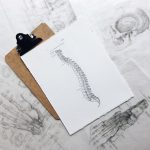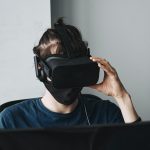VR can improve cultural stigmas and racism
Ever asked someone to come closer to you by curling and moving your index finger? Well, in the United States and Europe, this body language gesture is considered very normal, while in countries like the Philippines, Singapore and China it is considered extremely rude. Cultural differences like these are what make or break school/office friendships. Virtual Reality simulations are helping bridge the gap these days by giving a view of 360° videos as simulations which capture the lives and attitudes of different people from all around the world.
Students are given a chance to live in the lives of other students from across the globe, learning cultural differences, traditions and values. Empathy is one of the best skills to have at one’s disposal in order to navigate respectfully through situations that require cultural knowledge. To go through simulations where the user is experiencing the life of another, they build empathy and awareness which helps them understand and retain knowledge which can be helpful when faced with unfamiliar situations. A project set up by the North Carolina State University aimed to do just that. Using the Oculus Go headset in a 2-hour long workshop, the students experience a simulation of a global business meeting set in an office in China. There is communication among people from different backgrounds, the likes of Singapore, India and the United States. In a setting that is safe to make mistakes, the students assumed the roles of different members present at the meeting and work though different interactions. They get to learn what could be considered rude, cringe worthy, pleasing and all ways of interpreting actions and sentences for the other individual’s culture.
VR simulations help in the diversity and inclusion training of employees of large corporations, and helps build a company culture that is vibrant and welcoming. In a 12-minute VR simulation created by Stanford and Columbia Universities, the user gets to experience the life of a black male where he is faced with racism and discrimination in different walks of his life, involving his childhood and adult life. ‘1000 Cut Journey’ takes the user to show life in a classroom, workplace and interactions with the police while walking in the feet of a man of color and learning the daily bias that is felt by him.
With the first experience felt by virtual reality, individuals are increasing their empathy skills and becoming aware of unconscious biases as well. Such VR simulations are bringing us one step closer to helping build empathy and understanding for cultural differences, as well as biases and discrimination felt by different racial groups. In the space of today, it is important to have citizens with open views and empathic hearts.
Written by Simran Singh
Similar articles to check out:







